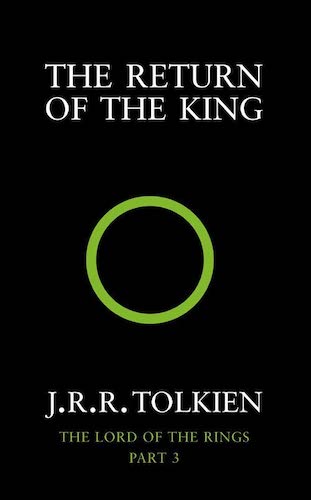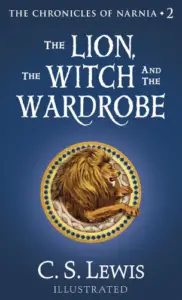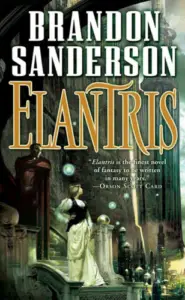Lord of the Rings: The Return of the King
Book Author: J. R. R. Tolkien
Summary reviewed by:
Terrence Timmons
Terrence Timmons
Analyst
Bachelor of Arts (BA), University Of California, Santa Barbara 2019
With over 4 years of experience as an analyst. Terrence Timmons is committed to analyzing summaries without compromising on quality.
Lord of the Rings: The Return of the King: Summary
Enter the realm of myth and majesty in 'The Lord of the Rings: The Return of the King', a tale spun with mastery where ancient prophecies are fulfilled, and destinies collide. The crescendo of J.R.R. Tolkien’s iconic trilogy once again beckons us to the epic world of Middle-earth. It is a universe on the brink, where the desperate song of war echoes across enchanted forests and haunted mountains, setting the stage for the final battle between the forces of light and the omnipresent shadow.
Our beloved fellowship, now scattered, treads paths marked by hope and despair. Aragorn, the ranger of the North, now embraces his lineage as the heir of Isildur. With a courage borne of kings, he journeys towards the dread fortress of Mordor, an army of the free peoples of Middle-earth at his heels, and the weighty mantle of his destiny upon his shoulders.
Meanwhile, in the white city of Minas Tirith, Gandalf the White stands as the city's stalwart guardian. His staff and will are bent against the onslaught of Sauron’s forces, his wisdom a beacon in the approaching storm. A saga of bravery unfolds as men, elves, and dwarves unite, their camaraderie echoing against the stone walls of the besieged city.
Yet, it is in the shadow of Mount Doom, the heart of Sauron's dark kingdom, that the fate of all lies. The unlikely heroes, the hobbits Frodo and Sam, assisted by the pitiable and treacherous Gollum, carry their burden closer to its fiery end. The One Ring, an object of immense power and palpable malevolence, must be destroyed, for the fate of Middle-earth hangs precariously on its demise.
Tolkien’s storytelling brilliance resonates throughout, binding these threads of hope, bravery, and sacrifice into a grand tapestry of epic fantasy. 'The Return of the King' takes us through spellbinding landscapes imbued with deep-rooted lore and epic battles, culminating in a profound exploration of the struggle between good and evil, and the enduring spirit of camaraderie and hope in the face of overwhelming darkness.
Spoilers (watch a short ad to reveal spoilers)
Lord of the Rings: The Return of the King: Genres
Fantasy
Adventure
High Fantasy
Epic Fantasy
Quest Fiction
Lord of the Rings: The Return of the King: Main Characters
Frodo Baggins: The brave and resilient hobbit entrusted with the task of destroying the One Ring. Frodo’s unwavering sense of duty, even in the face of despair, showcases his innate integrity, especially during his journey in Mordor.
Samwise Gamgee: Loyal to a fault, Sam’s dedication to Frodo is a testament to his deep sense of friendship. His strength in the face of adversity, such as when he carries Frodo up Mount Doom, embodies the theme of enduring hope.
Aragorn: The rightful heir of Isildur, his acceptance of his lineage signifies his bravery and commitment to the greater good. Aragorn’s leadership during the Battle of the Morannon showcases his courage and strategic acumen.
Gandalf the White: His wisdom and strategic foresight make Gandalf an instrumental figure in the defeat of Sauron. His defense of Minas Tirith demonstrates his unwavering dedication to the cause of good.
Merry Brandybuck: An adventurous hobbit and Frodo’s cousin, Merry’s bravery shines in the Battle of Pelennor Fields where he assists Éowyn in slaying the Witch-king, thereby demonstrating the strength that can be found in unlikely places.
Pippin Took: Another of Frodo’s hobbit companions, Pippin’s curiosity and quick-thinking aid the cause of the Free Peoples, as when he lights the beacons of Gondor, thereby showing the power of resourcefulness and courage.
Éowyn: The niece of King Théoden of Rohan, Éowyn is a shieldmaiden who refuses to be sidelined in the war against Sauron. Her defeat of the Witch-king highlights themes of defiance and the breaking of societal norms.
Gollum: The corrupted hobbit is a cautionary figure illustrating the corruptive power of the Ring. His obsession leading to the Ring’s destruction signifies the self-destructive nature of unchecked desire and greed. Once known as Sméagol, Gollum’s moral and physical decay highlight the detrimental effects of the Ring’s influence.
Lord of the Rings: The Return of the King: Themes
The Struggle between Good and Evil: The story showcases an epic battle between the forces of good (the Free Peoples of Middle-earth) and evil (Sauron and his allies). The ultimate triumph of good, seen in the destruction of the Ring, highlights the theme of hope and the potential for redemption.
Friendship and Loyalty: This theme is exemplified in the relationship between Frodo and Sam, whose unwavering loyalty to each other helps them persevere in their arduous journey.
The Corrupting Influence of Power: The One Ring’s influence over characters like Boromir and Gollum highlights the dangers of unchecked power and greed.
Courage and Heroism: Characters often show courage in the face of immense odds, such as Éowyn’s confrontation with the Witch-king or Sam carrying Frodo up Mount Doom.
Loss and Sacrifice: The costs of victory are steep and the fellowship endures significant loss, seen in the physical and psychological toll on Frodo, symbolizing the sacrifices necessary to combat evil.
The Passing of an Era: With the defeat of Sauron, the Third Age ends, signifying the transition from a world of magic and myth to one of men, as the elves and wizards leave Middle-earth for the Undying Lands.


Lord of the Rings: The Return of the King
Date Published: October 20, 1955
Disclaimer: As an Amazon Associate I earn from qualifying purchases.




